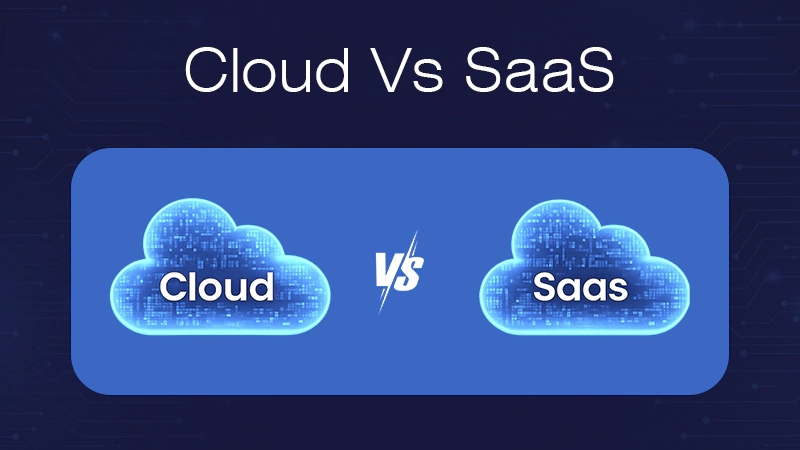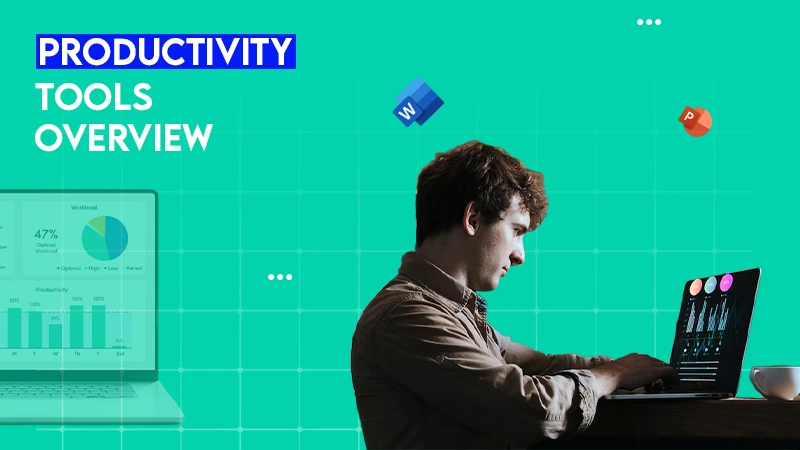Ans: Some of the best-performing ERP systems in the market are SAP, Oracle NetSuite, Microsoft Dynamics 365, Odoo, Infor CloudSuite, and Workday.
Top ERP System Examples: Best Business Management Tools You Must Know About
Businesses need to optimize their operations channels to work at lightning speed to stay on top in the competitive market. And that’s where ERP (Enterprise Resource Planning) systems come as a solution for small to large-scale companies.
The benefits of ERP systems are numerous. From automating manual tasks, processing HR payroll, to improving supply chain and customer service, the ERP systems fit businesses like a glove.
We’ll explain the ERP System examples that are shaping the future of business worldwide. Read this blog to gain a clear understanding of examples of enterprise resource planning (ERP) systems and determine which one is right for you.
What is an ERP System?
ERP systems are a type of software that is used for the core operations of any company. It works with all types and natures of businesses and easily handles multiple processes from accounting, HR management, business analytics, to supply chain.
The best part is that these software programs manage and present everything under one roof, which saves time and reduces the chances of errors. The most popular ERP system examples are SAP, Oracle NetSuite, Microsoft Dynamics 365, and Odoo.
These are the key functions of every ERP system:
- Financial administration
- Management of the supply chain and inventory monitoring
- Human Resource planning
- Management of customer relationships (CRM)
- Production and operations
- Management of projects and compliance
Now that you’re aware of the examples of an ERP system and its definitions, let’s go ahead and understand its importance.
Why Businesses Need ERP Systems?
Running a business successfully while managing all aspects from finance, supply chain, market competition, and customer requirements is a real tiring job. Thus, a business operating on any scale needs an ERP system that streamlines everything, making management and tracking easier. Here’s more on why businesses should have an ERP system:
- Improved Efficiency: The companies require a system to automate routine processes that reduce the manual labor of data tracking and managing. The ERP system takes control over this manual work, freeing up time.
- Centralized Real Time Access: The ERP systems offer centralized solutions combining all the business core aspects. Moreover, it tracks the data faster in real-time, boosting decision-making.
- Scalability Factor: Every business has to work systematically in order to grow in the future. The Enterprise Resource Planning System allows companies to add more features and modules for the expansion in operations.
- Regulatory Compliance: ERP systems include integrated tools that assist in following the industry standards and legal obligations.
So you can see that the businesses can get real support from the ERP systems example like Odoo and SAP.
Top 10 ERP System Examples
ERP systems are not just operational tools, but assets that help to build core strategies of the companies. We have listed the best examples of ERP system here, along with their features. Read and check out each of the options:
1. SAP ERP
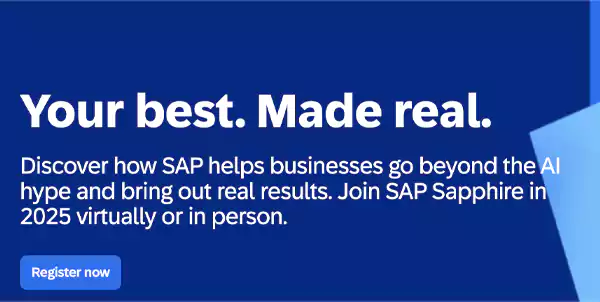
The first on our list of examples of Enterprise Resource Planning Systems is the most popular one amongst all: SAP ERP. This system helps to streamline the core functions of any business: HR, finance, supply chain, and customer management. If you want an industry-standard software, then this is the one.
Best for: Companies looking to scale.
Industries Best Suited: Manufacturing, healthcare, retail, and service.
Features:
- Supports integration of third-party plugins.
- Monthly service audits and software upgrades.
- Has a two-factor security control system.
- Comprehensive dashboard with advanced analytics.
2. Oracle NetSuite

Oracle NetSuite is a software-as-a-service platform designed to solve the problems in business functioning. It simplifies IT management, supports the HR team with processing data, tracking inventory, and enhancing supply chain efficiency.
Best for: Mid-sized to big companies building an ecosystem.
Industries Best Suited: Software, IT services, retail, and distribution.
Features:
- Simple dashboard for operations and financial tracking.
- Provides chat support through the customer’s ID.
- Helps in managing projects and allocation of resources in real time.
- Spot errors and rewrite the data easily.
3. Microsoft Dynamics 365
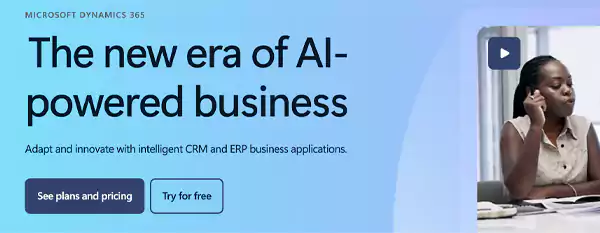
Microsoft Dynamics 365 is a reputable CRM and ERP platform used by all the big companies around the world. Its built-in AI, ML mechanisms make it 10x smarter than any other platform. You can use the Microsoft Dynamics 365 suite to supercharge your decision-making and operations.
Best for: Business wanting to work on Microsoft ecosystem.
Industries Best Suited: Consumer goods, retail, manufacturing, and others.
Features:
- Provides tons of tools like Azure, Office 365, and Power BI.
- Designed to provide well-documented reports on business operations,
- Has offline and online capabilities and is mobile-friendly.
4. Odoo

Odoo is the perfect example of an ERP system for people looking for a fully equipped business suite. The best part is that this one’s an open-source platform, so you can use it without adding any additional cost to your budget.
Best for: Small to mid-sized companies.
Industries Best Suited: Retail, healthcare, manufacturing, and distribution.
Features:
- Dedicated CRM, sales, inventory, and accounting apps.
- Room to chat with onboarded people and clients.
- Real-time employee management, payroll, and recruiting solutions.
5. Infor CloudSuite
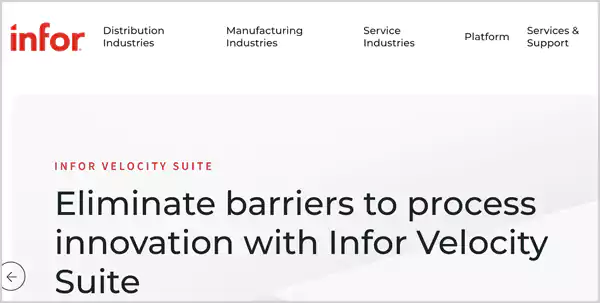
This example of ERP system is used by millions of people globally. It offers end-to-end solutions for companies in all sectors, including machinery, healthcare, and hospitality. The cloud-based medium offers the best chance of scalability and flexibility.
Best for: Companies seeking industry-specific solutions.
Industries Best Suited: Automotive, electronics, and machinery.
Features:
- Has a real-time reporting dashboard.
- Offers comprehensive capital management tools for small and large businesses alike.
- Has an extensive array of solutions driven by AI.
- Supports multiple languages and multi-currency transactions.
6. Workday

Workday provides cloud-based solutions for human capital management (HCM), ERP, and financial management that aim to reshape business processes and enhance operations. It helps in developing and forming the foundation of business management. If you seek a solution that is effective for small-scale companies, this is the ideal choice.
Best for: Companies looking for HR and Payroll solutions.
Industries Best Suited: Education, healthcare, finance, and service-based businesses.
Features:
- Uses AI and ML-driven solutions to power the team workflow.
- Beginner-friendly interface and simplified dashboard.
- Tools to manage employee attendance, payroll, and other HR solutions.
7. Epicor ERP
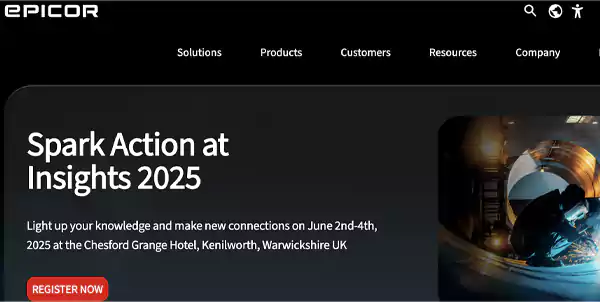
Epicor ERP is one of the best ERP systems that you should try out. It helps in managing and controlling the complex tasks of the business. Packed with advanced modules and features to navigate through manufacturing, sales, accounting and all other aspects seamlessly.
Best for: Mid-sized distribution companies.
Industries Best Suited: Automotive, aerospace, and industrial machinery companies.
Features:
- Provides tools for production planning and quality assurance.
- CRM system and advanced solutions for catering to all types of customers.
- Generates analytics reports to improve decision-making within the internal team.
8. Sage X3
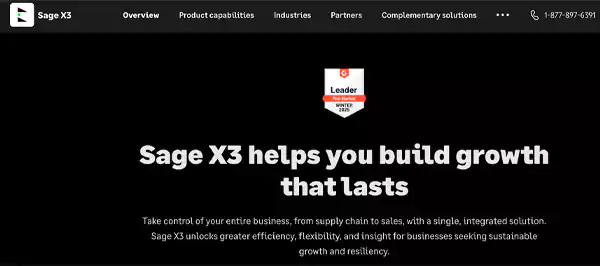
Sage X3 gives a unified solution for all the problems businesses have through its dashboard. Here, you can get advanced calculation tools and production management support. You can build a mobile-optimised workplace to collaborate with your team and other clients.
Best for: Mid-sized businesses seeking operations management.
Industries Best Suited: Manufacturing, distribution, chemicals, and service-based.
Features:
- Powerful project management and CRM capabilities.
- Works for all levels of businesses seeking to expand their operations.
- Provides multi-language and multi-currency support systems.
9. Acumatica
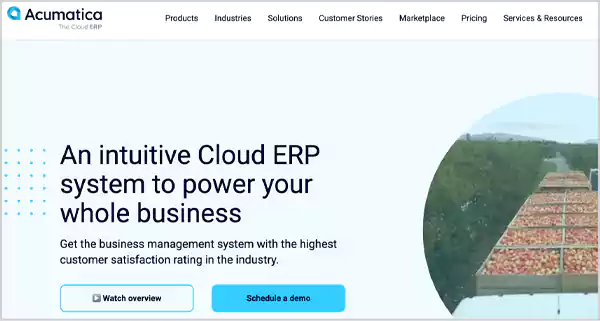
Acumatica is a software company that designs cloud-based and browser-based solutions for businesses. The software programs are readily available and are simple to integrate with any current system. The best part is that this example of an ERP system works on the cloud, so you can share it with your team members and collaborate in real-time.
Best for: Small to mid-sized businesses.
Industries Best Suited: Construction, manufacturing, retail companies.
Features:
- An embedded barcode scanning technique to preserve important data.
- Based on GAAP/IFRS-compliant accounting formulas.
- Subscription-based model supports flexibility and scalability.
10. SYSPRO
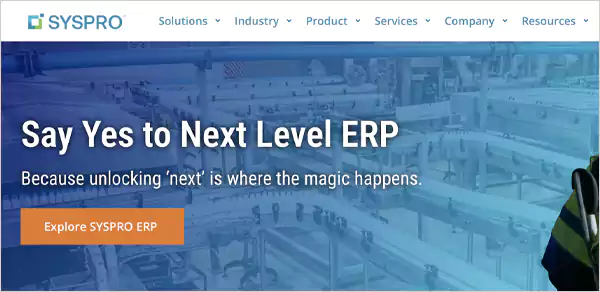
SYSPRO is the last on our list of ERP system examples, and it is one of the best if you are looking for light and easy-to-use software. It provides tools and a system that work for warehouse management, supply chains, and business operations.
Best for: Manufacturers and distributors managing large inventories.
Industries Best Suited: Electronics, industrial machinery, and automotive
Features:
- Dedicated support system and well-written resources.
- Helps in supply chain and production management.
- Offers a comprehensive dashboard to track and record.
Try all these ERP systems in their free trial period to understand their functionalities better.
How to Choose the Right ERP Systems?
Choosing the right examples of ERP systems can be a lot of work if you are new to the features. To help you out, we have listed the important factors that need to be taken into consideration while choosing enterprise systems examples:
- Business Size and Industry: Every size of business has different needs, and the same goes for the industry you are in. Note down your requirements and select a system that can handle the level of complexity you want, from project management to HR payroll.
- Scalability: Choose the platform that can be expanded in features. Generally, the subscription-based example of an ERP System works best, as you can select the advanced model with more features.
- Budget: Go for the software that matches the quality you want, but also fits in your budget. ERP system example charges recurring fees, licensing, and maintenance. So keep all these factors in mind.
- Integration Ability: Make sure that the ERP is capable of seamless integration with your current tools, like CRMs, accounting applications, or supply chain solutions. This is important to avoid any hindrance to business operations.
Keeping all these factors in mind will help you find the right one. Also, use the trial period of example of Erp systems you see potential in, then make your decision wisely.
Wrapping Up!
ERP systems play a key part in the business’s infrastructure. Whether you have a small-scale manufacturing unit or a large-scale digital agency, every type of business requires streamlined management in all aspects, like finances and analytics. These ERP System Examples can enhance productivity, collaboration, and decision-making with advanced analytical features.
We have explained all the examples of enterprise resource planning systems to their features in this blog. Hopefully, this will help you find the one that suits the nature of your business.
Frequently Asked Questions
Q: What are examples of an ERP System?
Q: What are the 3 common types of ERP?
Ans: The three types of Enterprise Systems are On-Premise ERP, Cloud-Based ERP, and Hybrid ERP.
Q: Is Microsoft 365 an ERP system?
Ans: No, Microsoft 365 is a productivity suite offering various software like Excel, Outlook, and Teams. It does not have any relation to CRMS or financial tracking.
Q: What is the most commonly used ERP?
Ans: SAP is the most common one used by small and large-scale companies alike because of its simple functionalities, powerful tools, and integration software programs.
Q: Is Excel an ERP system?
Ans: No, Excel is a spreadsheet. It helps in tracking and processing data; however, it lacks advanced features and integration capabilities.
Q: What is an example of an ERP system?
Ans: Oracle NetSuite is a great example of an ERP System that has the power to handle everything from CRM management to financial tracking to HR attendance and payroll.
Sources:


